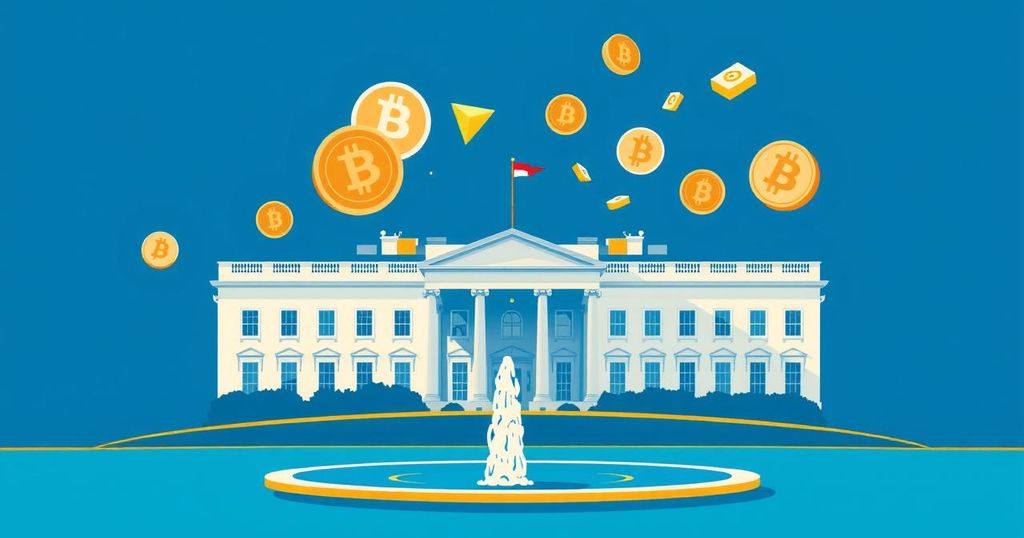Stablecoins Take Centre Stage at Bitcoin 2025 Conference in Las Vegas
Stablecoins emerged as the focal point at Bitcoin 2025 in Las Vegas, as Vice President JD Vance called them a “force multiplier” for U.S. economic might. Key legislative initiatives, including the GENIUS Act, are set to provide a solid regulatory framework for stablecoins. The momentum behind stablecoin integration in the financial system is growing rapidly, with significant discussions and negotiations underway to push reforms through Congress.
Stablecoins took centre stage at Bitcoin 2025 in Las Vegas, where the focus lingered less on Bitcoin and more on these dollar-pegged digital tokens. This conference, the largest of its kind, revealed how stablecoins are driving not just financial reform but also political change in Washington. The momentum for legislation is growing, attracting new donors, investors, and voters keen to reshape the crypto landscape.
Vice President JD Vance addressed the crowd—marking the first time a sitting vice president has spoken at such an event—expressing a strong endorsement for cryptocurrencies. “This is not just a conference; it’s a movement, and I am proud to stand beside you,” Vance declared to the 35,000-strong audience. He indicated that rather than threatening the U.S. dollar, stablecoins are, in fact, a “force multiplier” for U.S. economic strength.
These stablecoins are designed to maintain a stable value against assets like the U.S. dollar. Bo Hines, a member of the White House Digital Assets Council, noted that integrating stablecoins into the U.S. financial system could unlock trillions in global demand for American debt, particularly as they push to streamline payment systems. This all hinges on the GENIUS Act, which is set to lay down a regulatory framework for these digital currencies.
With the Senate preparing for a cloture vote on the GENIUS Act, Sen. Cynthia Lummis (R-Wyoming) stated they have reached a significant compromise with Democrats. “If we can get this passed, it will be the first significant piece of digital asset legislation in the Senate,” she added, underscoring the urgency of bipartisan agreement.
On the House side, Republicans have also struck their pace towards getting both stablecoin legislation and market structure bills to President Trump before the August recess. House Majority Whip Tom Emmer (R-Minnesota) expressed appreciation for the Senate’s efforts, noting, “The president promised this, and we want it done now.”
Rep. Bryan Steil (R-Wisconsin) is taking steps to forward similar legislation in the House, asserting the importance of stablecoin issuers buying U.S. Treasuries during a pivotal time. “It cements the U.S. dollar’s position as the world’s reserve currency,” he claimed, signalling robust support within the legislative body.
Tether, the leading stablecoin issuer globally, has stepped up to become a significant buyer of U.S. Treasuries. However, Steil rejected proposed Democratic amendments that could limit government officials’ participation in the stablecoin market. Kraken CEO Dave Ripley labelled the impending legislation vital as it will usher banks and brokers into the digital asset space, although some key components are still under discussion.
Paolo Ardoino, Tether’s CEO, remarked that commodity trading firms will drive increased adoption of stablecoins over the next five years. He suggested that traditional financial institutions entering this space could face limitations due to their established customer bases. However, Tether’s mission targets millions globally who remain unbanked, challenging the notion that this market segment is merely niche.
Washington is watching this scene closely as momentum continues to build under new regulatory guidance. The SEC has started to ease its previously aggressive stance, paving the way for more institutional involvement in the crypto sector. Commissioner Hester Peirce acknowledged the shift, proclaiming it’s time for clarity in regulations after years of limitations in dialogue.
On a final note, Robinhood’s CEO Vlad Tenev believes the future of tokenization—expanding beyond just currencies to include public and private market assets—lies ahead without the need for new laws, stating that the SEC currently holds the path forward.




Post Comment